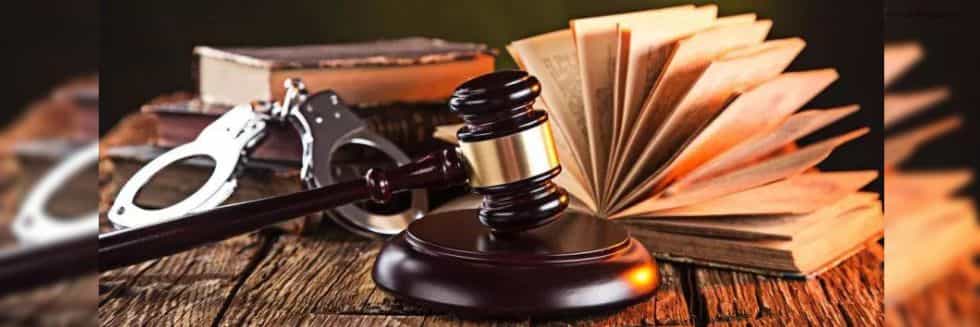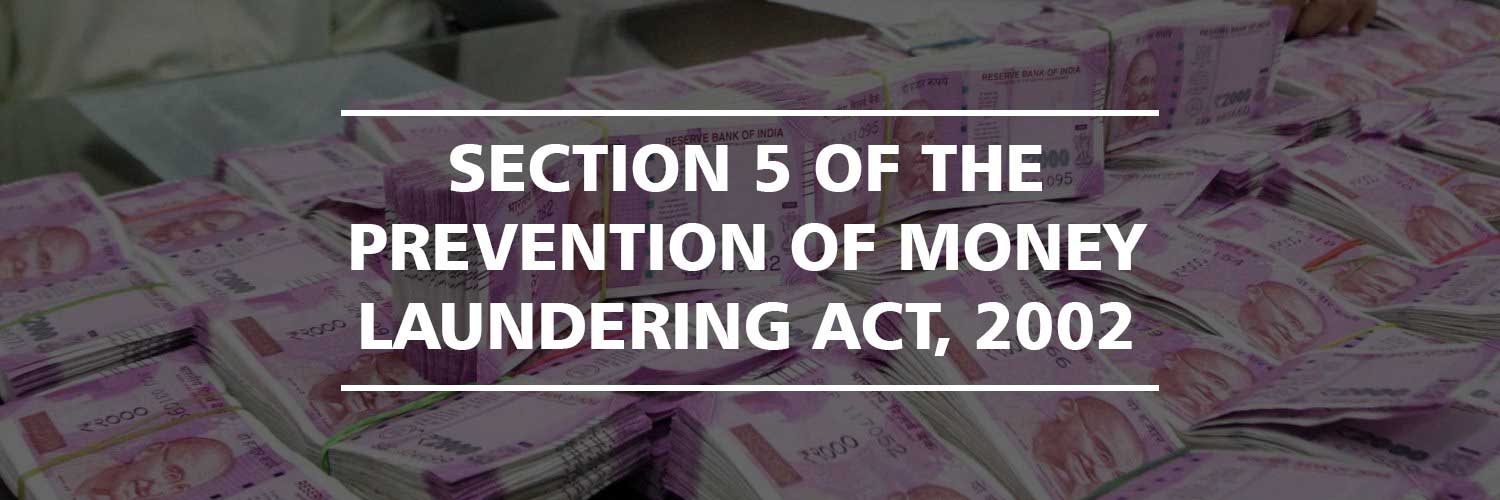The connection between Constitutional law and Criminal law has forever been a disagreeable and questionable one. While the previous articulates various standards focussing on the advancement of individual freedom by confining the State’s activities, the last option will, in general, endorse coercive activities, both procedurally and substantively, against executing people for the overall population significantly on the loose.
Criminal procedures enroll a point-by-point strategy to be followed for the earlier investigation and the ensuing formal accusation of the guilty parties, while extensive criminal law inventories the different offences that comprise the ‘substance’ of any crime. Writ petitions are a natural piece of the Constitutional law framework which are furnished to arm citizens with privileges to challenge the state in the event of injustice. Recently, a rising pattern has been seen in conjuring writ petitions under Article 32 of the Constitution in criminal matters.
Clubbing Of First Information Report
A first information report, commonly referred to as FIR, is detailed information recorded by a police officer while performing his duty on the bidding of an aggrieved or some other person to the commission of the crime. The police start the investigation only after filing an FIR. Section 154 of Cr.P.C., 1973 defines an FIR and what it consists of two essentials which are necessary to fulfill for filing a First Information Report under Section 154 of Cr.P.C. These are as follows:
- The conveyed details should form the basis of ‘information’.
- The information should prima facie relate or associate to the commission of any cognizable offence.
The data ought to, by all appearances, relate or partner to the commission of any cognizable offence. Therefore, First Information Reports is seen as an initial process to set the police machinery and the law in motion and facilitate them to collect the specific details of a case based on the information provided by the informants giving the first information to the police.’
No person shall be prosecuted more than once for the same offence. The Indian Constitution under Article 20(2)guarantees the right against double jeopardy. Several First Information Reports on the same incident would virtually mean numerous trials. Approaching the Supreme Court of India in such situations is a procedural safeguard against excessive litigation. ’
Case Laws And Supreme Court Stand On Quashing FIRs
In T T Anthony v State of Kerala, a 2001 verdict, the Supreme Court held that there could not be a “second FIR” on the same issue.
There can be no subsequent FIR, and there can be no fresh investigation on receipt of every ensuing data concerning a similar cognizable offence or similar event or occurrence leading to at least one cognizable offence. On receipt of data about a cognizable offence or an episode leading to a cognizable offence or offences and on entering the FIR in the station house diary, the official responsible for a Police Station needs to research not simply the cognizable offence detailed in the FIR yet, in addition, other associated offences committed throughout similar exchange or similar event and record at least one reports as given Section 173 of the Cr. P.C., the Court had said.
In the Arnab Goswami case, the petitioners proposed clubbing the multiple FIRs filed against the petitioner in various places. However, the issue arose whether the Supreme Court is constitutionally empowered to club such multiple FIRs with accusations against a specific individual in different jurisdictions into one.
“Subjecting an individual to numerous proceedings arising in different jurisdictions based on the same cause of action is a violation of fundamental rights,” a bench headed by Justice DY Chandrachud said.
The Court said the petitioner could approach the Supreme Court to club the proceedings in such a situation. “A reiteration of our choices – to allude to them independently would be a procession of the natural – has firmly settled that any reasonable limitation on fundamental rights should comport with the proportionality standard, of which one part is that the action embraced should be the most un-prohibitive measure to accomplish the legitimate state point. Subjecting an individual to numerous proceedings arising in different jurisdictions based on the same cause of action cannot be accepted as the least restrictive and effective method of achieving the legitimate state aim in prosecuting crime,” the bench had said.
Recently, in the case of Nupur Sharma, the Supreme Court declined a plea of Nupur Sharma to club the hate speech cases filed against her across the country. A vacation Bench of Justices Surya Kant and J B Pardiwala refused to grant interim relief.
The Supreme Court vacation Bench distinguished Sharma’s case from the precedent in the Arnab Goswami case. It indicated that the Court had granted relief to Goswami since he was a journalist and cannot extend the same status to Nupur Sharma.
Although the Supreme Court in Goswami’s case emphasized press freedom, it noted that the Constitution guarantees the same free speech rights to all citizens.
“Yet, to permit a columnist to be exposed to different grumblings and to the quest for remedies crossing various states and wards when confronted with progressive FIRs and grievances bearing a similar establishment stiflingly affects the activity of that freedom. This will effectively destroy the freedom of the citizen to know about the affairs of governance in the nation and the journalist’s right to ensure an informed society. Our decisions hold that a journalist’s right under Article 19(1)(a) is no higher than the right of the citizen to speak and express. Nevertheless, we must as a society never forget that one cannot exist without the other,” the Court had said.
The Goswami and Anthony rulings are both valid precedents binding on the vacation Bench. However, in an oral observation, the vacation Bench said, “If the Court’s conscience is not satisfied, the law can be molded”.
The Criminal Procedure Code does contain statutory provisions relating to the same. There are judgments in which the Supreme Court has dealt with the issue of providing Constitutional impetus to the clubbing of FIRs.
In V.K. Sharma v. Union of India, a two-judge bench of the apex court had a similar issue before them; a writ petition filed under Article 32 of the Constitution to amalgamate all the pending cases in different jurisdictions across the country into one. “The Court provisioned for the petitioner to approach the concerned High Courts to bring all the related cases within its territorial jurisdictions into one. The Supreme Court rejected or refused to consolidate them on its own.”
However, in the State of Punjab v. Rajesh Syal, the Supreme Court’s three-judge bench overruled the V.K. Sharma judgment. The Punjab and Haryana High Court consolidated all the cases under Section 482 of the Cr. P.C., relying on the precedent set in VK Sharma. It transferred them to a Special District Magistrate in Punjab, challenging this verdict, or the judgment in the Supreme Court, which subsequently held that the ‘judgment’ was in contravention to the established law and was not within the ambit of Article 142 of the Constitution which grants ample powers to the Supreme Court.
Quashing Of First Information Report
The regulations are made to remember the interests of individuals. There are various regulations made to defend the stifled. However, specific individuals will take advantage of and exploit the regulations formed to shield them, use them to coerce honest individuals, and involve them with fraudulent allegations, scattering Court’s time.
Starting the precedent of manufacturing protests, individuals tend to use FIR as their weapon for retaliation. For this very reason, legislators have made a specific arrangement of regulations to shield the blameless individuals from double-dealing of such regulations.
Misleading FIR or protests implies making bogus claims with a vindictive goal by housing FIR or grumblings because of adulterating current realities and creating the conditions to abuse the other individual.
Whether An FIR Can Be Quashed After Filing A Chargesheet?
The High Court of any State under Section 482of the Code of Criminal Procedure has the power to quash a First Information Report even after filing of Charge Sheet by the prosecution, the parties can also reach a modus vivendi.
Sheo Nath Singh V. Sujata
The accused can also appraise the Court that there is no material evidence against him even after the investigation in the matter. Another recourse for the accused is to take pleas of inherent improbability based on indisputable facts and material collected against him in the charge sheet. As power given to the High Court under Section 482 is wide enough, the High Court ordered for quashing FIR under such circumstances.
Anand Kumar Mohattavs State (Govt. Of NCT of Delhi)
This Criminal Appeal is recorded by the Appellants challenging the last judgment and request dated 02.02.2016 of the High Court of Delhi. The High Court vide the above dated last judgment and request excused the request recorded by the Appellants under Section 482 of Criminal Procedure Code and would not subdue FIR No.0139/2014 dated 20.08.2014. During the pendency of the allure in this Court, Respondent No.1 recorded a charge sheet dated 03.08.2018 in the Court of Metropolitan Magistrate, Patiala House Court, Delhi against the Appellants thus.
Consequently, via an alteration to the fundamental petition in the allure, Appellants have likewise appealed in their prayer for quashing of the charge sheet dated 03.08.2018. Appellants look for quashing of the FIR dated 20.08.2014 and the charge sheet dated 03.08.2018. A Bench comprising S.A. Bobde and L. Nageswara Rao, JJ. allowed an appeal filed against the judgment of the Delhi High Court, whereby it had dismissed the appellant’s writ petition seeking to quash the FIR filed against them.
The case arose from a property matter between the appellants and the complainant. The parties had agreed on the development of the appellants’ property. However, the said agreement could not be performed due to the statutory ban on new construction in the area. In the complainant’s case, the appellant was not returning a deposit of Rs 1 crore made at the time of entering into the agreement. Therefore, an FIR under Section 406 IPC (Indian Penal Code) was lodged against the appellants. The appellants’ filed a writ petition before the High Court seeking to quash the said FIR. However, the petition was dismissed. Aggrieved thereby, the appellants preferred the instant appeal. The complainant opposed the appeal on the ground that the charge sheet had already been filed in the case, and therefore the FIR could not be quashed at this belated stage.
Later, the Supreme Court turned down the complainant’s contention while referring to the High Court’s power under Section 482 Cr. PC. After referring to Joseph Salvaraj A vs State of Gujarat, the Court observed, “there is nothing in the words of Section 482 which restricts the exercise of the Court’s power to prevent the abuse of process of Court or injustice only to the stage of the FIR. The power is undoubtedly conferred to prevent abuse of process of any court.” Furthermore, on the case facts, the Court held that the money deposited with the appellant could not be said to be an entrustment. In any case, if there was a misappropriation, the remedy was available in a civil court. In the opinion of the Court, the FIR filed under Section 406 IPC was not tenable, and therefore it was quashed. The appeal was thus allowed, and the judgment impugned was set aside.
Sundar Babu & Ors. V/S the State of Tamil
Facts:
Sukanya, the complainant, was married to SundarBabu, appellant No. 1. Mr. Venugopal and Mrs. Ramathilagam, are appellants no. 2 and 3 and are parents of SundarBabu. Appellant no.4, Rajinishree is his sister, and Andalammal is his maternal grandmother. The marriage took place on 25 November 1998 and the Appellant No.1 left for the USA on 1/7/1999. The complaint was filed on 6/02/2002 under Section 498A of Indian Penal Code 1860 and Section 4 of Dowry Prohibition Act, 1961. The complainant filed a divorce petition, which was granted ex-parte on 12/07/2001. The appellant claimed that Sukanya remarried on 06.02.2002.
Issue:
How far can the Court exercise its powers under section 482 of the Code of Criminal Procedure?
Arguments:
The appellants contended that the complaint was nothing but an abuse of law. There was no basis for making an allegation. The appellant had left for the USA after six months of marriage. There was no explanation for the delay in lodging the complaint. ‘The prosecuting agency before the High Court of any State in India contested the petition filed under Section 482 of Cr. P.C and claiming that the bare perusal of the complaint discloses the commission of alleged offences, and it is not a case which needs to be allowed.” The High Court accepted the respondent’s claim and disposed of the application. The counsel for the appellant claimed that the factual scenario indicated above and even a cursory glance shows that the petition filed by the complainant was an attempt to implicate the accused falsely.
Judgment:
Section 482 of the Cr. P.C does not confer any new power on the High Court. It only saves the inherent powers of the High Court. It lays down three circumstances under which these inherent powers may be exercised, namely, (i) to give effect to order under the code, (ii) to prevent the abuse of the Court, and (iii) to secure the ends of the justice otherwise. Courts have inherent powers apart from the expressed provision of the law, essential to discharge duties and functions imposed on them. While exercising the powers under this section, the Court does not act as a court of revision and appeal. Even though this section provides vast powers to the Court, these powers must be exercised carefully, sparingly and under the tests laid down in the section itself. The Authority of the Court is for the advancement of justice, and if this authority is used for injustice, the Court should use its powers to prevent abuse. In exercise of its powers, the Court would be justified to quash any proceeding if it finds that continuance of that proceeding leads to the abuse of the process of the Court or quashing the proceeding would help to meet the ends of the justice. The Court must ensure that the exercise of this power is based on sound principles. It shouldn’t be exercised to stifle a legitimate prosecution.
The High Court is the highest Court of a State and should refrain from giving a prima facie decision in a case where the fundamental facts are incomplete and hazy. The evidence has not been collected and produced before the Court, and the issues involved, whether factual or legal, are of a magnitude and cannot be seen in their actual perspective without sufficient material. No rigid rule can be laid down regarding cases in which the High Court will exercise its inherent powers of quashing the proceeding at any stage. Therefore, the proceedings pending before the Judicial Magistrate are quashed, and the appeal is allowed.
The appellants in India, while making efforts at conciliation. The essential elements required for an offence of breach of trust defined by Section 405 IPC and punishable as per Section 406 IPC are also not present in the case, except against Appellant 2, i.e. the mother-in-law, who had been entrusted with / given dominion over some properties by the respondent. Thus, the case under Section 406 IPC is only against appellant 2.
Delhi Judicial Services Association v. State of Gujarat
Facts:
- N.L. Patel was appointed as the Chief Judicial Magistrate at Nadiad in 1988. He later found that there was no co-operation on the part of the police in delivering a summons, producing offenders for trial rail, on the account on which trial procedure was delayed. He then wrote a letter to the District Superintendent of Police and forwarded the identical copy to the Director-General of Police. Nevertheless, no action was taken by both.
- Mr. S.R. Sharma, the Police Inspector of Nadiad, was annoyed by the behaviour of the C.J.M, had withdrawn the constables from the C.J.M Court.
N.L. Patel had then filed two complaints against the police inspector of Nadid and other Police Officials for delaying the process of Court. Later, C.J.M directed the police to file a criminal case against 14 persons who were delaying the process. - However, the Police officers had tendered in an unpolitical way. S, he has directed the police to drop the case. Frustrated by this, the Police Inspector complained to C.J.M to the Registrar of the High Court through the District Superintendent of Police.
- On one of the days, the police inspector invited C.J.M to his police station to check all the documents for himself. The C.J.M had accepted this and had gone to the police station to check them. Later, what happened shook the nation.
- C.J.M was forced to drink liquor, and the Constables tied him up. He was even photographed in a drunken state. The police inspector had countered the argument saying he was in that position before getting there.
Issues:
- Did the arrest made by the Police Inspector amount to Contempt of Court?
- Can the Supreme Court intervene in the decisions of the Subsidiary Court/ can it take cognizance in the cases where there is contempt?
Issues answered:
The arrest made by the Police Inspector was not of some ordinary person/ juristic person but was of the person responsible for rendering the protection/judgment in the interests of the state. Under Article 136 of the Indian Constitution, it has been stated that arresting a person working for the judiciary would amount to Contempt of Court and be liable for punishment.
Under Article 136 of the Indian Constitution, the powers granted to the Supreme Court are innumerable. It has the power to intervene in any High Court proceedings where it thinks there is an injustice.
Judgment:
Supreme Court had taken this matter very seriously because of the enormous clamoring of the state. Many lawyers had filed petitions regarding the removal of the police officers to the Supreme Court.
The Supreme Court has taken cognizance of this case and has ordered the removal of the Police Inspector and the other five police officials immediately from their term. The Apex Court had also issued some guidelines while arresting a judicial officer, which are to be followed compulsorily.
Police Inspector was awarded “simple imprisonment” of 6 months and a fine of 2,000 rupees. The other officials were made to pay 1,500 and imprisonment for 15 and three months, respectively.
Conclusion
To conclude, it tends to be reasoned that concerning the quashing of the First Information Report (FIR) or clubbing of numerous FIRs into a solitary one, a writ petition under Article 32 of the Constitution under the watchful eye of the Supreme Court is not a lawfully satisfactory and sound choice, explicitly taking a gander at the stand that has been taken by the Supreme Court in different decisions. Simultaneously, when procedural choices for the equivalent are accessible under the procedural code (Cr. P.C), a Redressal strategy conjuring this basic integral arrangement is unjustifiable and will not be to the greatest advantage of the Petitioner.
This article is written and submitted by Mohd Shaaz Peerbaksh during his course of internship at B&B Associates LLP. Mohd Shaaz is a 5th year law student from IMS Unison University, Dehradun.






